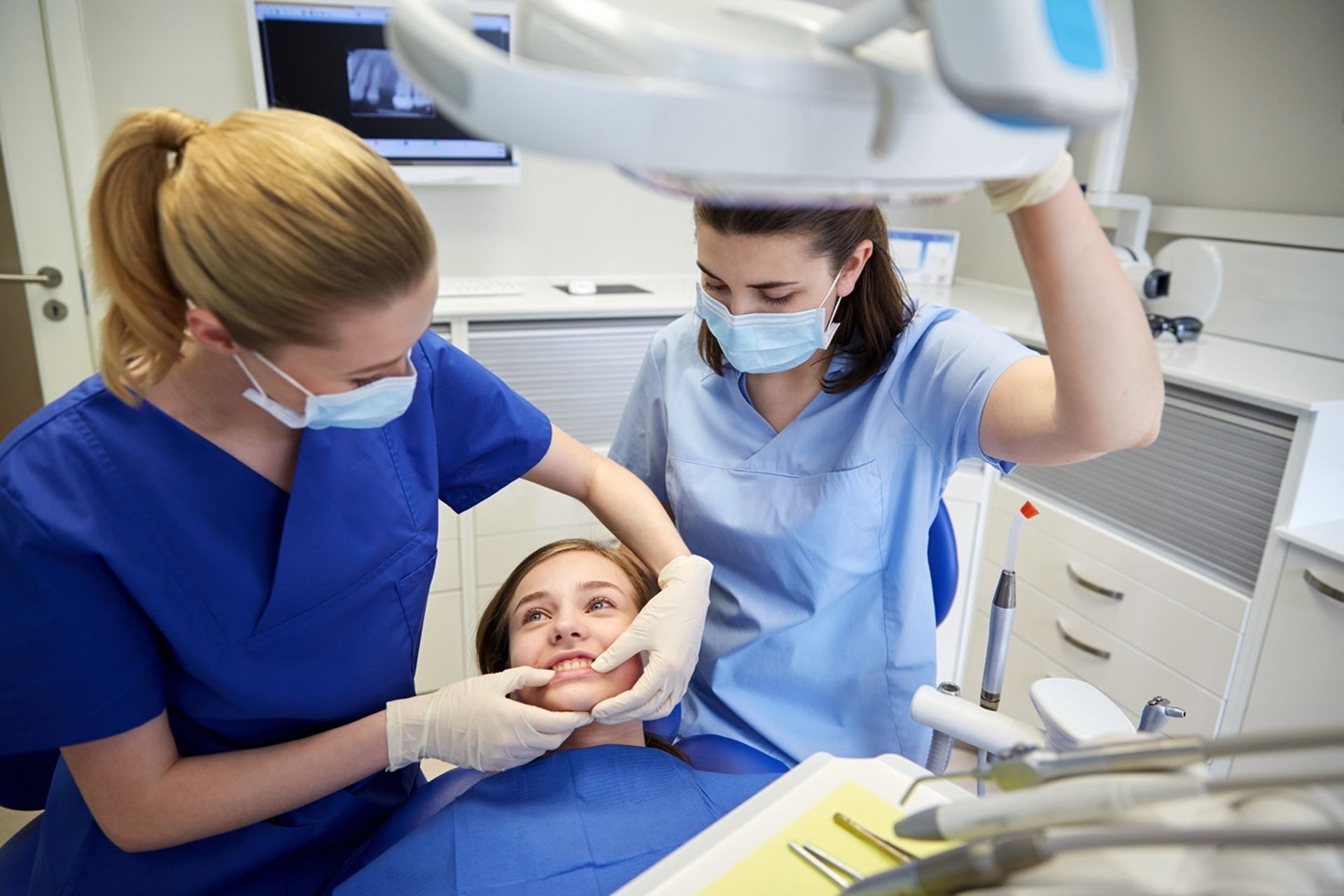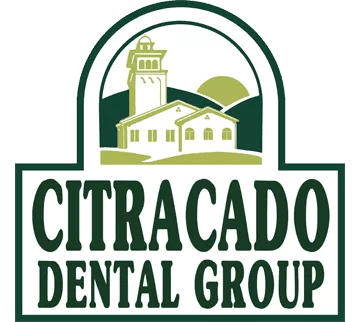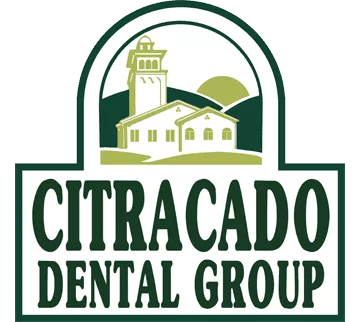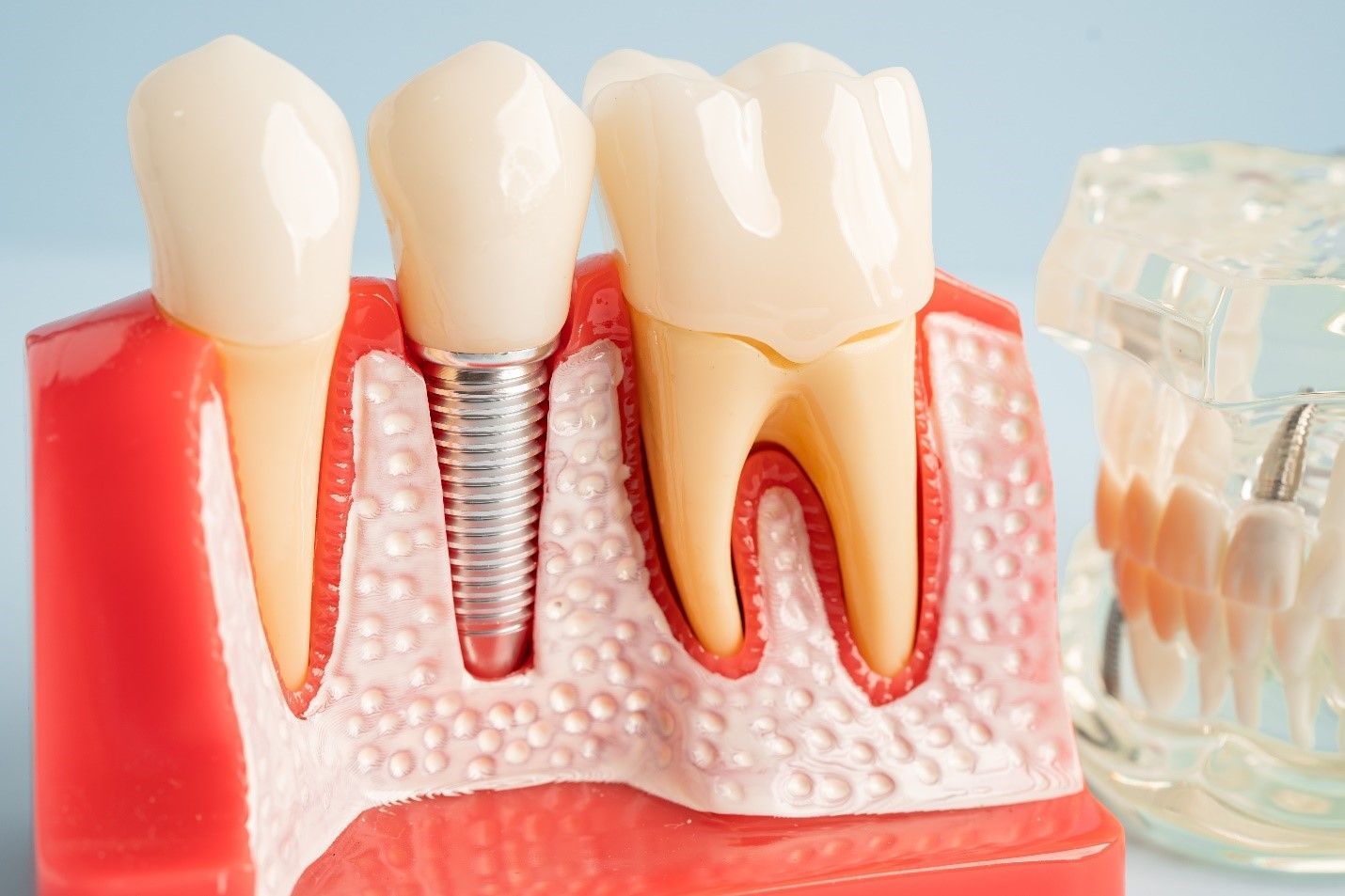CALL/TEXT US (760) 489-5545
Celebrate National Children’s Dental Health Month With These 5 Tips

February is National Children’s Dental Health Month. Since its inception, National Children’s Dental Health Month has sought to educate parents, teachers, caregivers and health care professionals about the importance of oral health for children and adolescents.
The celebration seeks to increase access to preventive care and dental treatments for all children, encourage healthy eating habits that prevent disease and cavities, promote proper brushing and flossing techniques and encourage regular dental visits.
Here are 5 ways parents and their kids can celebrate
Encourage Healthy Snacking
Snacking is an important part of a healthy diet and it’s crucial that children are given access to nutritious snacks. It’s especially important to make sure that kids eat healthy snacks, such as fruits and vegetables, rather than processed sugary foods.
Research has revealed that consuming too much sugar can contribute to tooth decay in young children. Sugary snacks can raise the risk of cavities and gum disease. Sugar also provides empty calories with no nutritional benefit, which can contribute to weight gain and obesity in children. Therefore, it is essential to provide healthy alternative snack options for kids when possible.
Kids can get creative with how they prepare their fruit or vegetable snacking by cutting veggies into fun shapes or adding dips like hummus or peanut butter to apples slices or carrot sticks.
The key is ensuring that portions sizes of sugary snacks are kept small, while emphasizing the availability of healthier snack choices like fruits and veggies. Planning ahead for snack time is an easy way to help nourish your child without compromising on taste or convenience. There are plenty of creative recipes online that allow you to make delicious treats using natural sweeteners instead of refined sugar!
Parents play a vital role in setting up healthy habits for their children from an early age, so it's important to encourage kids to make healthier snacking choices.
Teach Proper Oral Hygiene Habits
Teaching children how to establish good dental hygiene practices from an early age can help them develop lifelong healthy habits that will contribute to their overall well-being.
Brushing twice a day for two minutes each time is recommended because it helps clean plaque and bacteria from the surface of the teeth and gums, preventing tooth decay and cavities. Make sure that you or your child use a toothbrush with soft bristles and that it is the right size for their mouth – too hard of bristles can damage delicate gum tissue and large brushes may not fit nicely around smaller teeth.
Also, it is recommended that parents help their children brush their teeth every night. Supervise their brushing until a consistent habit and technique are observed.
When brushing your teeth, be sure to cover all surfaces: front, back, top and bottom – it’s important to brush even in hard-to-reach areas. It can also be helpful to break down the two minutes into four sections: one minute spent brushing all surfaces inside the mouth; one minute spent on the outside surfaces; 10 seconds spent on the tongue; then 10 seconds focusing on flossing between each tooth.
At first, having kids brush their own teeth can seem like a challenge, but by taking proactive steps to making sure they understand why it’s important and showing them how to do it correctly, they will soon develop good habits that will last for many years to come!
Offer Rewards For Taking Care Of Their Teeth
When it comes to teaching kids good oral hygiene habits, such as brushing their teeth twice a day and visiting the dentist regularly, rewards can be a great way to encourage them. Kids are often motivated by reward systems and something as simple as watching a movie or going for ice cream after a successful visit to the dentist can help motivate them to take care of their teeth.
It’s important to make sure that the reward system is easily achievable and that it doesn’t focus solely on sugary treats, which can contribute to dental health problems. Instead, choose rewards that your children will enjoy and are related to better oral hygiene – such as toothbrushes with their favorite characters on them or books about taking care of teeth.
Young children may be more motivated by quickly attainable rewards like stickers; while older kids might prefer games or activities related to dental health – such as drawing toothbrushes in interesting art projects.
Rewarding good oral habits will help children understand why it’s important and give them something tangible that they can work toward.
Read Books About Dental Health
Reading books about dental health is a great way to encourage learning and discussion. Books can help children better understand why it is important to take care of their teeth and gums, as well as encourage them to ask questions about any concerns that they may have about their own dental health.
When introducing children to books about dental health, look for titles with positive messages and easy-to-understand language. There are plenty of products on the market that focus on teaching kids how to brush and floss correctly, but also consider broader topics such as caring for braces, tips for avoiding cavities or how sugar affects the mouth.
You can also make reading about dental health even more fun by turning it into an activity! Have your child create artwork based on what he or she has read in the book – this will help reinforce the knowledge that they’ve acquired while having fun at the same time.
By reading books together and discussing the topics within them, you can provide guidance and support while helping your child develop healthy oral hygiene habits that they’ll benefit from throughout life!
Schedule Regular Dental Check-Ups For The Entire Family
Regular dental check-ups are an important part of maintaining good oral hygiene. Not only do they help detect dental issues early, but they also allow your dentist to provide preventive care such as cleaning, X-rays and treatments that can help protect your family's teeth and gums.
It’s recommended that children visit the dentist twice a year for check-ups and adults should go every six months, so it’s important to keep regular appointments for the whole family. Talk to your dentist about how frequently you should schedule checkups based on each individual’s needs.
At each visit, your dentist will likely look for signs of cavities, gum disease or other oral health conditions that may be present. Your dentist might also suggest preventive measures such as sealants or fluoride treatments, which help strengthen teeth and prevent against decay.
When scheduling regular dental check-ups for your family, consider asking about any additional services that may be recommended based on your child’s age – such as sealants and topical fluoride treatments – so that everyone can get on track with preventive care.
If you are ready to schedule those check-ups, contact us today!
QUICK MENU
RECENT POSTS


ARCHIVES
CATEGORIES
VISIT OUR TOP DENTIST IN ESCONDIDO, 92026!
CALL/TEXT:
EMAIL:
HOURS
Mon: 8:00 a.m. - 5:00 p.m.
Tue: 8:00 a.m. - 5:00 p.m.
Wed: 9:00 a.m. - 7:00 p.m.
Thu: 8:00 a.m. - 5:00 p.m.
Fri: 8:00 a.m. - 5:00 p.m.
Sat: 8:00 a.m. - 12:00 p.m.
Sunday Closed




